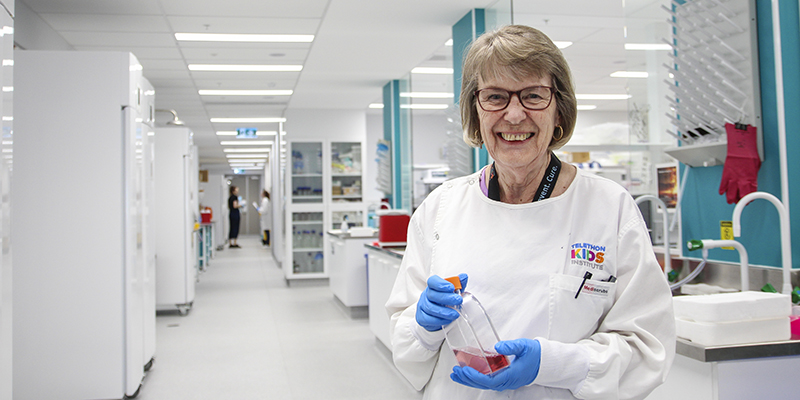Search
Research
ACTIVE STRIDES-CP: Protocol for a randomised trial of intensive rehabilitation (combined intensive gait and cycling training) for children with moderate-to-severe bilateral cerebral palsyFor children with cerebral palsy (CP), who are marginally ambulant, gross motor capacity peaks between 6 and 7 years of age with a subsequent clinical decline, impacting their ability to engage in physical activity. Active Strides-CP is a novel package of physiotherapy targeting body functions, activity and participation outcomes for children with bilateral CP. This study will compare Active Strides-CP to usual care in a multisite randomised waitlist-controlled trial.

News & Events
Up and at ’em: The Kids physical activity researcher named a WA Young Tall PoppyA The Kids Research Institute Australia researcher focused on promoting more active childhoods to improve child health and wellbeing will be named amongst WA’s most outstanding young scientists at the upcoming 2020 Young Tall Poppy Science Awards.
Research
Immunogenicity of the inactivated influenza vaccine in children who have undergone allogeneic haematopoietic stem cell transplantThis study provides evidence to support annual inactivated influenza vaccine administration to children following allogeneic haematopoietic stem cell transplant
Research
Determining risk features for medulloblastoma in the molecular eraNick Gottardo MBChB FRACP PhD Head of Paediatric and Adolescent Oncology and Haematology, Perth Children’s Hospital; Co-head, Brain Tumour Research

News & Events
Farewelling Jette Ford – a The Kids legendThe Kids Research Institute Australia has farewelled one of its most treasured employees, with research officer Jette Ford closing the door on a quietly stellar 37-year career which has changed the face of cancer research in WA and around the world.
Research
Self-Reported Traumatic Brain Injury and Its Biopsychosocial Risk Factors in Siblings of Individuals with Neurodevelopmental ConditionsSiblings of individuals with neurodevelopmental conditions are situated within a complex system of risk and resilience factors for poor outcomes, many of which overlap with the risk of traumatic brain injury and correlate with poorer recovery trajectories.
Research
Investigating associations between birth order and autism diagnostic phenotypesBirth order effects have been linked to variability in intelligence, educational attainment and sexual orientation. First- and later-born children have been linked to an increased likelihood of an Autism Spectrum Disorder (ASD) diagnosis, with a smaller body of evidence implicating decreases in cognitive functioning with increased birth order. The present study investigated the potential association between birth order and ASD diagnostic phenotypes in a large and representative population sample.
Research
Review of the quality of evidence for preschool and school-based programs to support social and emotional skills, perseverance and academic self-conceptThis project provides guidance to help school leaders review the evidence for different programs, as well as a review of universal, evidence-based pre-school and school-based social and emotional learning programs available in Australia.
Research
Measuring early child development in low and middle income countries: Investigating the validity of the early Human Capability IndexInclusion of early child development in the United Nations Sustainable Development Agenda raises issues of how this goal should be monitored, particularly in low resource settings. The aim of this paper was to explore the validity of the early Human Capability Index (eHCI); a population measure designed to capture the holistic development of children aged 3-5 years. Convergent, divergent, discriminant and concurrent validity were examined by exploring the associations between eHCI domains and child (sex, age, stunting status, preschool attendance) and family (maternal education, home learning environment) characteristics. Analyses were repeated using data from seven low and middle income countries.
Research
PLAYCE@Home - understanding the impact of COVID-19 on children’s physical activity, health & developmentYoung children are no exception when it comes to the importance of friendships and social interaction for maintaining good health and well-being. This COVID-19 research project involves surveying parents and monitoring how their young children are coping during this time of social distancing.
